Atrial fibrillation (AFib)
Get Dexur’s Personalized Hospital Specific Presentation on Quality, Safety, Compliance & Education

By: Gokul Menon Nov. 27, 2020
Cardiac arrhythmias are conditions that cause irregular heart rates. Studies say that it is quite a common condition that can go unnoticed because of its asymptomatic nature. Thus, accurate diagnosis plays a key role in reducing mortality. ECG (Electrocardiographic) monitoring is one of the most common methods used to detect arrhythmias. With the advent of technological advancements, monitoring of vitals using wireless devices has taken precedence over traditional methods. These advanced biosensors possess the ability to predict major events like arrhythmias before they occur. These biosensors continue to reshape patient-physician relationships by opening up the possibility of continuous ECG monitoring even in an outpatient setting.
Read more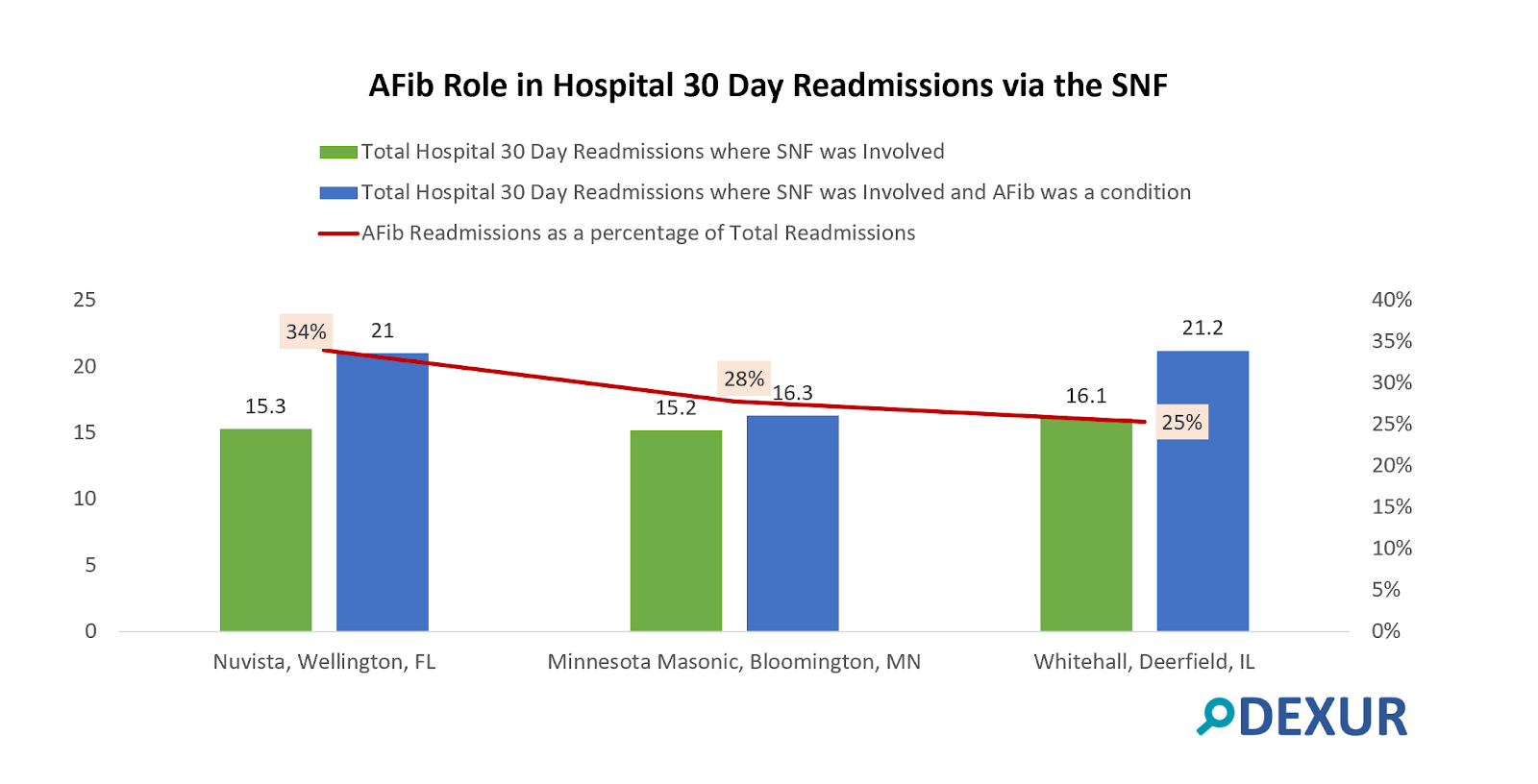
By: Avinash Kumar May. 10, 2019
CMS recently instituted a program to evaluate and incentivize skilled nursing facilities (SNF) based on Hospital 30 day readmissions. For example, if a patient is discharged from a hospital to a SNF on Jan 15th 2019 and is readmitted back to a hospital on Jan 27 2019, then this would be counted as part of the measure for SNF Hospital 30 Day readmissions. Dexur analyzed Medicare claims (Oct 2015 to Mar 2018) for three separate skilled nursing facilities to understand the role of Atrial Fibrillation (AFib) on the overall readmissions for these SNFs.
Read more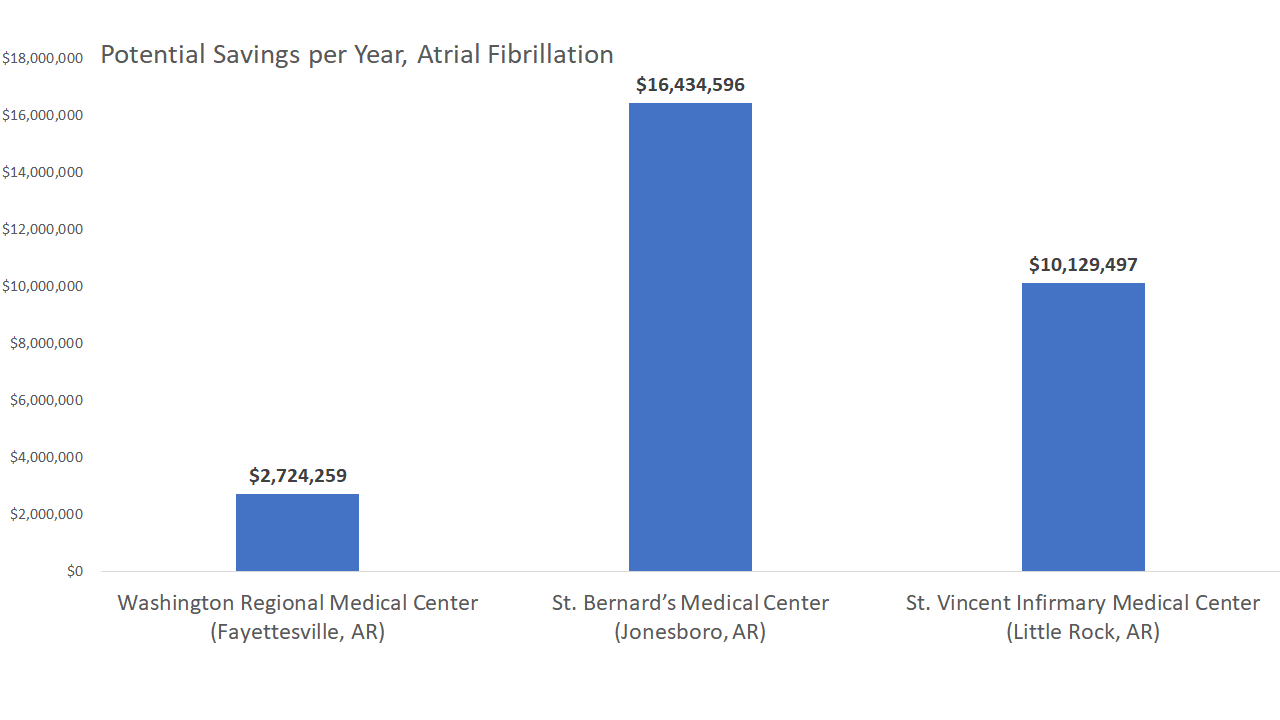
By: James Pitt Oct. 08, 2018
Atrial fibrillation, the most common arrhythmia, is a condition in which the heart's upper chambers contract rapidly and irregularly. Twenty years ago, Haïssaguerre et. al discovered that pulmonary veins can spontaneously trigger AFib, and isolating pulmonary veins from each other with radiofrequency catheter ablation can correct it.
Read more
By: James Pitt Aug. 09, 2018
Atrial fibrillation (Afib) is a major risk of coronary bypass surgery (CABG). Incidence estimates vary greatly depending on study methodology, from 5 to 40% of patients. Among 49,264 patients who underwent CABG from 2001-2012 in the Society of Thoracic Surgeons database, 19% had new-onset atrial fibrillation.
Read more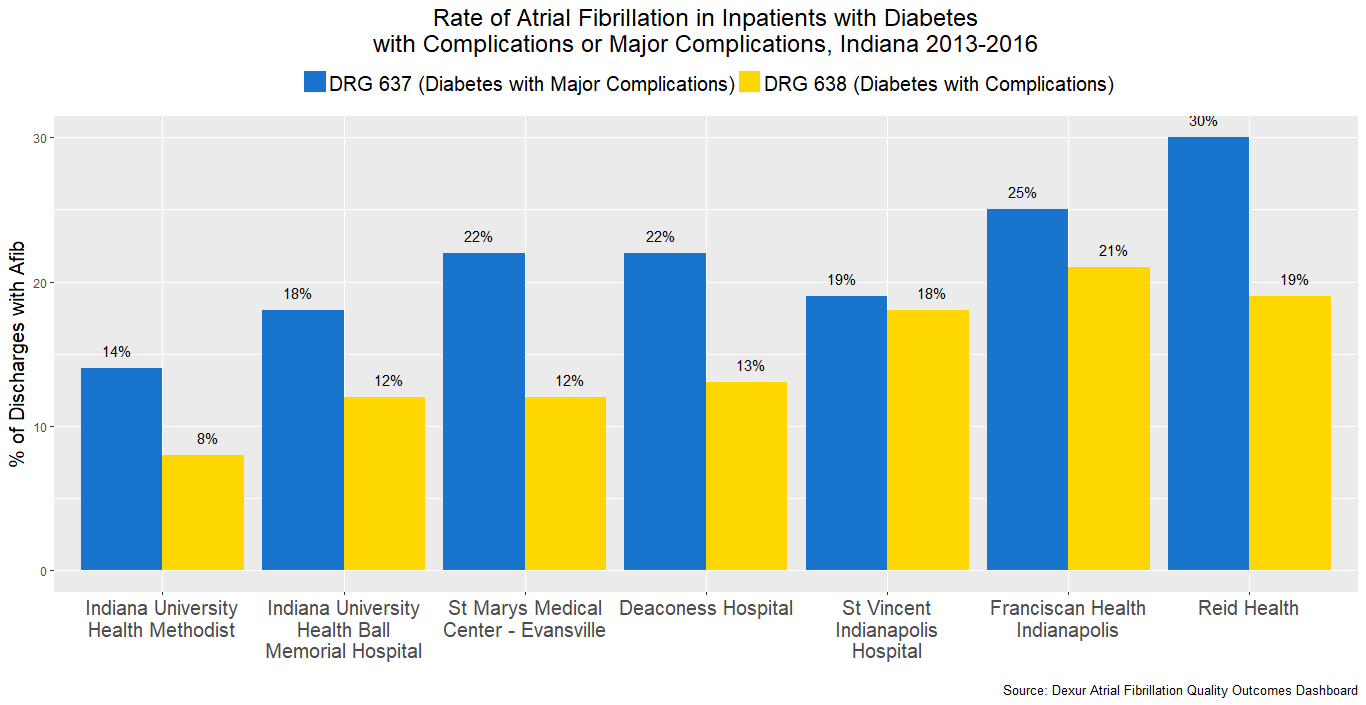
By: James Pitt Jun. 29, 2018
Atrial fibrillation (Afib) is an irregular heartbeat that has a major impact on quality of life and increases the risk of stroke or heart failure. A May 2018 meta-analysis found that diabetes raises the risk of atrial fibrillation by 28%.
Read more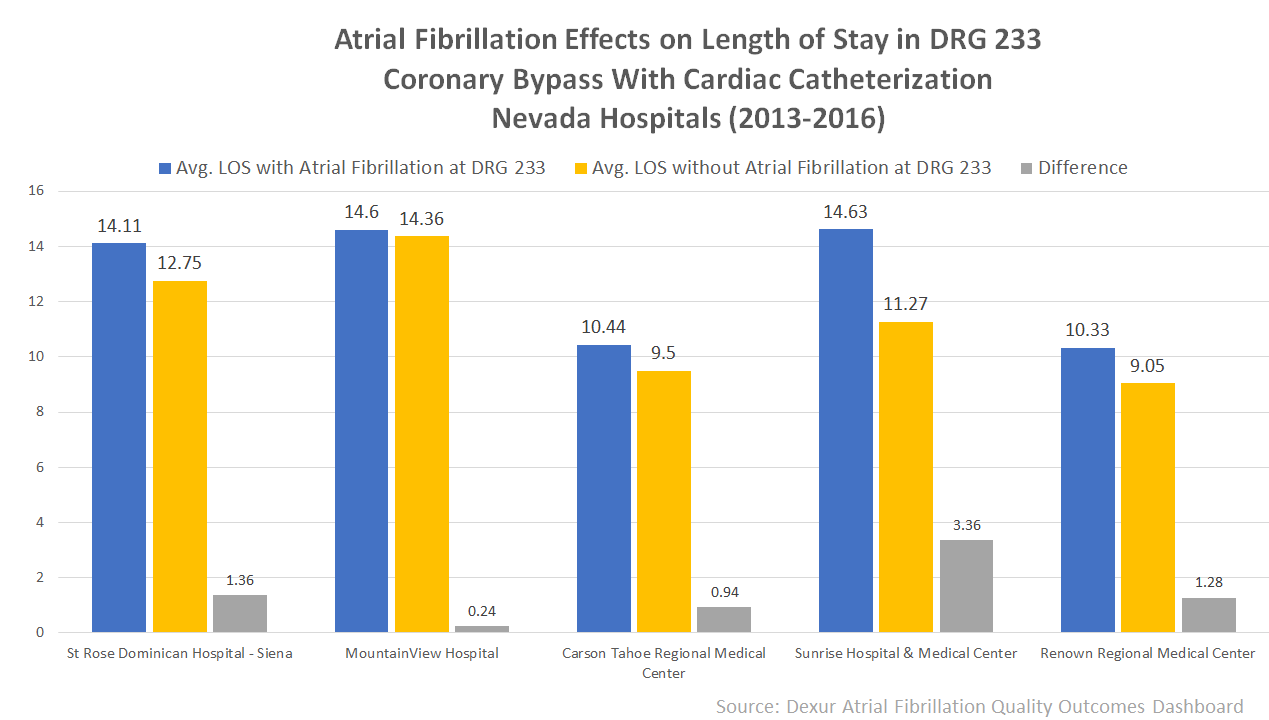
By: James Pitt May. 15, 2018
Atrial fibrillation (AF) is a type of heart arrhythmia common in patients over 40. A 2016 study in Journal of Internal Medicine found that “the estimated lifetime risk of developing AF is one in four for men and women aged 40 years and above. Projected data from multiple population-based studies in the USA and Europe predict a two- to threefold increase in the number of AF patients by 2060.” Dexur has previously examined how AF affects readmission rates in patients with comorbid respiratory conditions.
Read more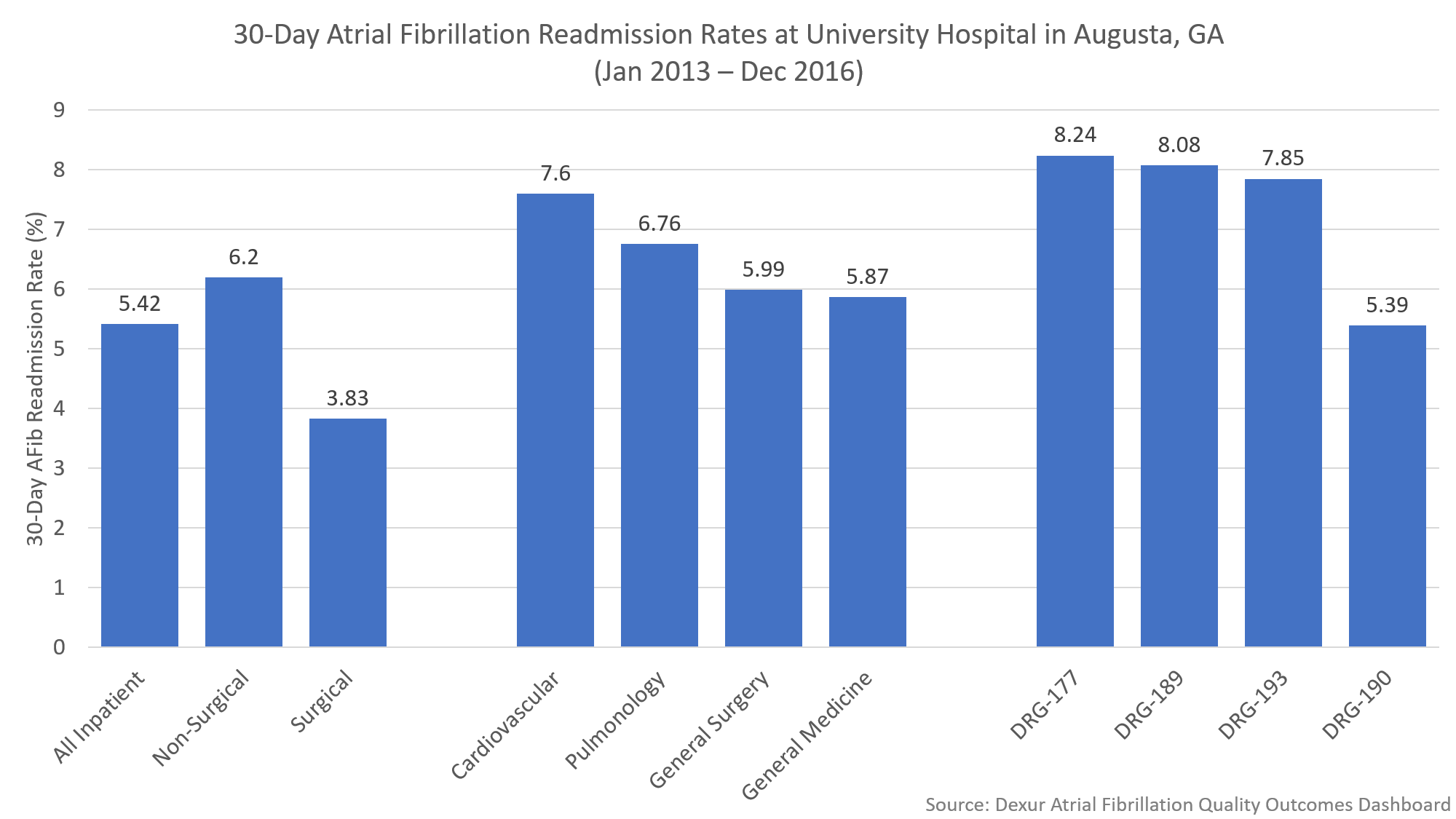
By: Saparja Nag Apr. 26, 2018
Eliquis (apixaban) is primarily prescribed to patients with nonvalvular atrial fibrillation to reduce risk of stroke, as well as to prevent deep vein thrombosis or pulmonary embolisms. Although AFib can occur for a number of different reasons, AFib and reduced pulmonary function are often comorbid. One study from 2009 offered three explanations for the relationship between these two conditions, given below.
Read more
By: Saparja Nag Apr. 17, 2018
Eliquis, an oral anticoagulant developed by Bristol-Myers Squibb, is targeted at reducing patients’ risk of stroke or systemic embolism in patients with non-valvular atrial fibrillation, in addition to preventing and treating DVT (deep vein thrombosis) and PE (pulmonary embolism) in high-risk patients. The link between atrial fibrillation and conditions of the kidney has been examined in numerous clinical studies but the exact impact of anticoagulants on renal failure patients’ risk of bleeding has yet to be empirically understood in clinical trials.
Read more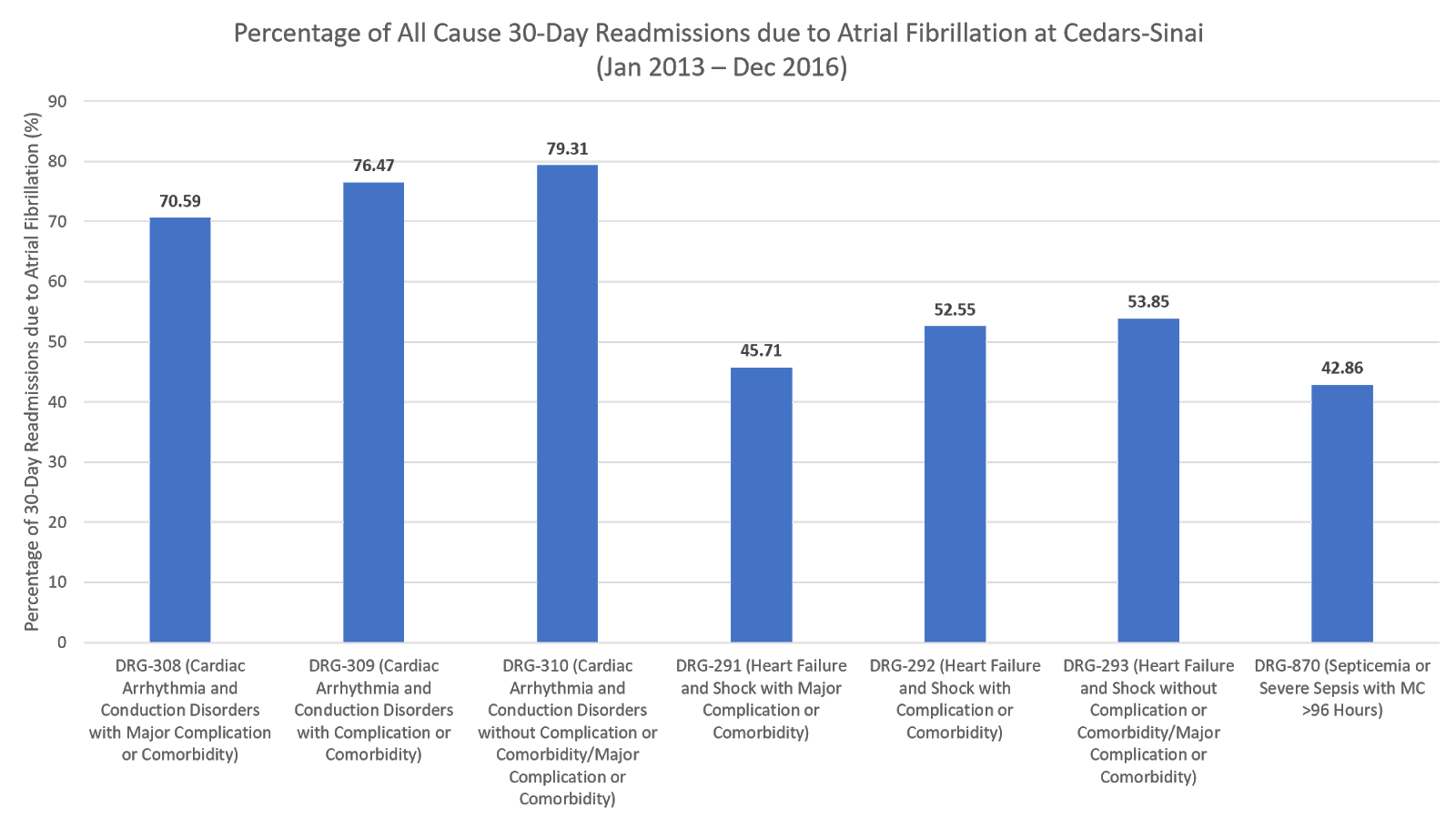
By: Saparja Nag Mar. 20, 2018
Eliquis, produced by Bristol-Myers Squibb, was approved by the FDA in early 2013 to treat patients with nonvalvular atrial fibrillation in order to reduce their risk of stroke and systemic embolism. Dexur analysts were able to identify key patient populations by condition that had a significant proportion of AFib (atrial fibrillation) readmissions out of all readmissions at Cedars-Sinai. These patients that are readmitted with AFib within 30 days of an index hospital visit, that may or may have been related to AFib may benefit a great deal from Eliquis.
Read moreBy: Saparja Nag Nov. 07, 2017
Atrial fibrillation (AFib) is a common condition among Medicare patients, which is characterized by an abnormal beating pattern of the heart’s atria. It is the most common heart arrhythmia, affecting 9% of people ages 65 and older. Certain cardiovascular conditions, like high blood pressure and heart failure, can increase the likelihood of developing AFib as patients age. AFib also increases the risk for stroke and bleeding in patients, however the development of pharmaceuticals have mediated such risk factors.1
Read more